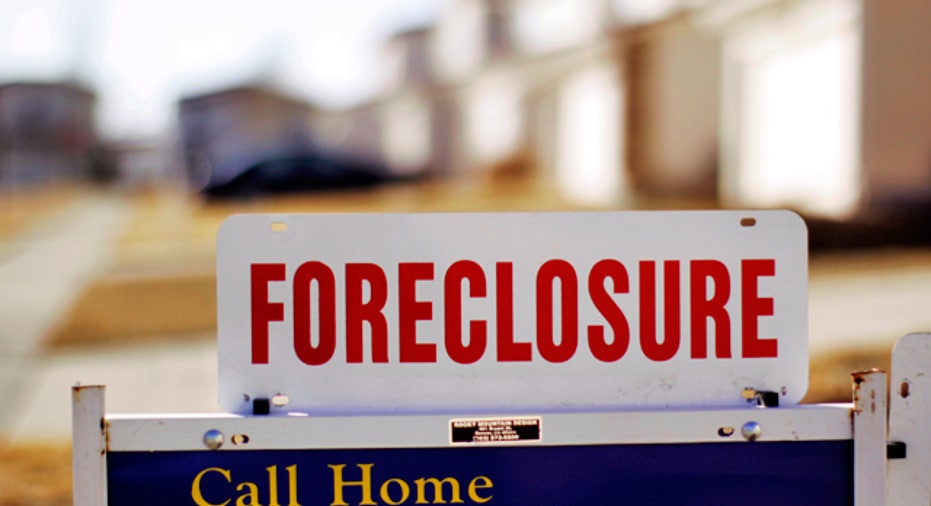Can Second Lender Foreclose After Bankruptcy?

Dear Bankruptcy Adviser,
I received a Chapter 7 discharge back in 2005. I had my first mortgage and two HELOCs, or home equity lines of credit, included in the bankruptcy, never reaffirmed, but continued to live in the home and pay all three mortgages. The balloon payments on the HELOCs are due next year. The value of the home is quite a bit less than the total value of the mortgages. I am not able to pay the balloon mortgages nor would I want to refinance them even if I could since the house is in very bad shape and needs an extensive amount of work done. What happens next year when the balloon payments come due? Will the bank with the two HELOCs (different than the first mortgage) foreclose?
- Lindsay
Dear Lindsay,
I need to start by explaining your situation in a little more detail.
You filed a bankruptcy in or around 2005 and had your bankruptcy meeting. The bankruptcy trustee assigned to review your case had no issue with your petition for bankruptcy. After a few months, you were granted a discharge. The discharge means you eliminated most or all of your debts listed in your bankruptcy paperwork.
While the bankruptcy case was open and active, you wisely did not reaffirm either the first mortgage or the two HELOCs. A reaffirmation agreement is a legal enforceable contract filed with the bankruptcy court that states your promise to repay all or a portion of a debt that may otherwise have been subject to discharge in your bankruptcy case.
The reason I believe your decision not to reaffirm a wise one is because you can choose to walk away from the property without liability to pay either the first mortgage or the HELOCs. If you had reaffirmed the loans and walked away from the property, you could still be liable for the first mortgage and the two HELOCs.
Now you have some room to negotiate with the lenders. The first mortgage lender may not care to negotiate or modify your loan. This lender may simply decide to foreclose and write off the difference between what you owe on the property and what the property sold for in foreclosure. As long as you make your monthly payment, you can keep the property. It is hoped you can comfortably afford that payment.
However, the HELOC lenders probably don't have any position other than hoping you want to keep your home. You will be able to negotiate a settlement of the balance owed or a payment reduction. You would need a lump-sum payment to settle on the balance owed. Make sure to discuss this option with an accountant to determine whether you would have an income tax forgiveness issue.
Let's say you owe $200,000 on the first mortgage and another $75,000 combined on the two HELOCs, but the property is only worth $150,000. This means there is no equity to secure the HELOCs.
Prior to the bankruptcy, the HELOC lenders could foreclose but also had the right to sue you for failing to pay. Since you filed bankruptcy, the right to sue is gone, and only the right to foreclose remains. The bankruptcy filing wiped out their right to sue you to pay, but it did not wipe out their security interest in the property.
This is where your situation gets interesting.
The HELOC lenders are unlikely to foreclose in the foreseeable future. In order to get paid, the property value must increase substantially because the first mortgage will always have priority. The HELOC lenders would have to foreclose and use the proceeds from the sale to pay off the first mortgage prior to receiving anything. Because there would be nothing left after paying the first mortgage, the junior lenders are not going to foreclose. It is bad business.
You are so far upside down that the HELOC lenders are likely going to charge off the loan. Once you stop paying, the lenders are likely to claim the loans uncollectible rather than foreclosing. The lender will sell the debt to a collection agency, which buys the debt for pennies on the dollar. You will be able to negotiate with the collection agency to settle the debt or reduce your monthly payment.
That collection agency will lie about the color of the sky to get you to pay. And you will be inundated with phone calls. Once you stop paying on the HELOC loans, the lender or subsequent collectors know they can only foreclose and cannot sue you, but they are allowed to call you ... all day. Every day.
Have fun with the calls. Don't let them be nasty, and do let them lie. You know your rights. They can foreclose but not sue you. If the collector lies, call him or her out on it. And any lender lies will only help you with your negotiations. You can look at negotiating a much lower monthly payment or settling the debt.
Bankrate's content, including the guidance of its advice-and-expert columns and this website, is intended only to assist you with financial decisions. The content is broad in scope and does not consider your personal financial situation. Bankrate recommends that you seek the advice of advisers who are fully aware of your individual circumstances before making any final decisions or implementing any financial strategy. Please remember that your use of this website is governed by Bankrate's Terms of Use.



















